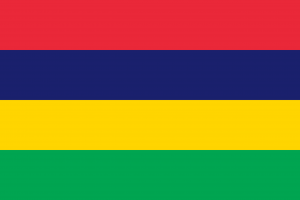Language/Morisyen/Grammar/Give-your-Opinion
Hi Morisyen learners! 😊
In this lesson, we will learn how to give your opinion and express your ideas in Morisyen. Being able to express your opinion is essential when communicating with native speakers, especially when discussing controversial topics. So let's get started!
Take some time to dive into these other pages after completing this lesson: Conditional Mood & Plurals.
Basic vocabulary[edit | edit source]
To give your opinion in Morisyen, you need to know a few basic words and expressions. Here are some of them:
| Morisyen | Pronunciation | English |
|---|---|---|
| Opinion | o-pi-nyon | Opinion |
| Feeling | fee-ling | Feeling |
| Good | bann | Good |
| Bad | move | Bad |
| To like | a-do-re | To like |
| To dislike | lai-zi | To dislike |
| To prefer | pre-fer | To prefer |
Expressing opinions[edit | edit source]
In Morisyen, there are many ways to express your opinion. Here are some useful phrases that can help you:
- Mo penC... (In my opinion...)
- Me dimanCe ki... (I think that...)
- Me kwar ki... (I believe that...)
- Me ena senz ki... (I have the feeling that...)
Let's see some examples:
- Mo penC ki dimoun Moris finn aKompli enn lot kuita dan lasenn 2021. (In my opinion, Mauritians have achieved another victory in the elections of 2021.)
- Me dimanCe ki bann plas Fodentere ena twa morisien ki vinn akote enn lot. (I think that the places of Fodentere have three Mauritians who come together.)
- 'Me kwar ki Moris ena enn valu paradi. (I believe that Mauritius has a paradise value.)
- Me ena senz ki bann ti dimoun pa milti ser zot kwin. (I have the feeling that children should not eat candy before dinner.)
Adjectives[edit | edit source]
Adjectives are very important when we want to give our opinion about something or someone. Morisyen adjectives come after the noun they describe, unlike English where they are usually placed before. Here are some common adjectives and their translations in Morisyen.
| English | Morisyen |
|---|---|
| Beautiful | bou-za |
| Ugly | lor-i |
| Good | bann |
| Bad | move |
| Interesting | in-ter-esan |
| Boring | ankui |
Let's create a dialogue:
- Person 1: To penC ki Burzi ena bel plaz la?' (Do you think that Paris has a nice square?)
- Person 2: Wi, mo penC ki plas Vendom ena enn bann vue opran. (Yes, I think that Place Vendome has a great open view.)
Verbs of opinion[edit | edit source]
In Morisyen, verbs of opinion are often followed by the word ki (that). Here are some verbs of opinion and their translations in Morisyen:
| English | Morisyen |
|---|---|
| To think | dimanCe |
| To believe | kwar |
| To feel | ena senz |
| To find | trouv |
Let's create a dialogue:
- Person 1: To pre-fer karo oswa bonbon? (Do you prefer candy or cake?)
- Person 2: Me, mo trouv ki sucre rouz ena enn bann gust ki pli for. (I find that red sugar has a stronger taste.)
Cultural insight[edit | edit source]
Giving your opinion is an important part of Morisyen culture. Mauritians are very expressive, and they enjoy discussing various topics. It is common to have debates and discussions during family gatherings or social events. In these events, it is important to respect the opinions of other people and engage in a respectful conversation. Morisyen people value freedom of speech, and they are not afraid to express their opinion on various topics, including politics, religion, and social issues.
Practice[edit | edit source]
To improve your Morisyen Grammar, you can also use the Polyglot Club website. Find native speakers and ask them any questions!
Here is an exercise you can do:
Fill in the blanks with the correct word or phrase:
1. Me penC... enn moman... nu vinn.: (I think... a moment... we will come.) 2. Me trouv ki... ena sipersit. (I find that... have superpowers.) 3. Mo pa kwar ki... enn plas mor.: (I don't believe that... a place of death.) 4. Me ena senz ki.... bann ti zanfan pou kapav aktif plis. (I have the feeling that... children will be able to be more active.)
Final thoughts[edit | edit source]
Congratulations! You have learned how to give your opinion in Morisyen, using basic vocabulary, adjectives, verbs of opinion, and essential expressions. Remember to practice as much as possible, and don't be afraid to engage in conversations with native speakers. If you have any questions, please ask them in the comments section below. ➡ Feel free to edit this wiki page if you think it can be improved. 😎
Other Lessons[edit | edit source]

